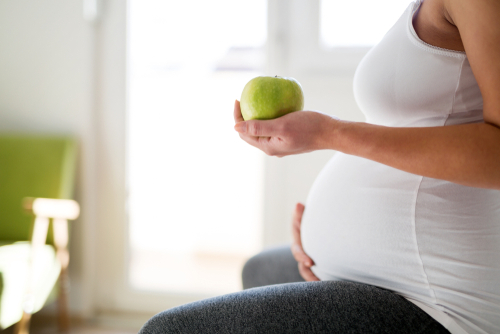Nutrition Tips when you are trying to conceive
We all know the importance of leading a healthy lifestyle. Being physically active, eating a well balanced diet and getting proper hydration are essential for our physical and mental well-being. The role of nutrition in fertility is however, strongly underrated. In reality, our lifestyle and food choices are proven to influence our fertility. Certain types of foods can in fact assist and boost our reproductive systems and create a very stable support for a healthy pregnancy.
During pregnancy the body undergoes some major changes and it is crucial to have a well prepared body with a suitable body mass index. This article will provide some background information and useful nutrition tips when trying to conceive.
Fuel up on iron
Menstruation is different for everyone – some women have it heavier, some – lighter. In the meanwhile, iron is leaving body together with the red blood cells. It is an important task to provide body with sufficient iron before pregnancy as its deficiency is not recommended for baby or mother.
Before trying to conceive and especially during the menstruation, it is important to increase the intake of iron. Some of the foods to consider include :
- Beans (Beans are also a very good source of plant protein and is highly recommended before pregnancy. We will discuss this shortly)
- Tomatoes
- Pumpkin seeds
- Green vegetables
- Meat
Meals and beverages that make periods heavier should be limited or avoided. Some examples of those include caffeine, alcohol and spicy food. Excessive caffeine intake is also considered to cause difficulties in conceiving, so it should be limited to moderate amounts.
Vitamin C
Vitamin C helps to absorb iron and provides body with essential nutrients. Tomatoes, broccoli, citruses and strawberry are examples of products rich in Vitamin C.
Protein
Including a lot of protein in diet is important. Meat , however, is not the only source of protein. When trying to boost fertility, vegetable protein is believed to be more beneficial as it supports ovulation and is lower in fats.
According to the studies, women who ate more plant proteins were less likely to have problems when trying to conceive.
A very good source of plant based proteins are :
- Beans
- Soybeans
- Lentils
- Tofu
- Nuts
Leafy Greens
Leafy greens are rich in vitamin B and folate. Those are beneficial not for female fertility only, but for males and babies too. In females, vitamin B and folic acids may improve ovulation, in males they help to produce healthy sperm, for fetus – they reduce chances of genetic problems, brain and spinal cord defects. Some of the recommended products include:
- Spinach
- Broccoli
- Romaine
- Legumes
- Asparagus
Fish
Fish is rich in omega-3 fatty acids, which helps to regulate reproductive hormones and improve egg quality. Not all fish are good for fertility though and it is important to know the difference.
Consume :
- Salmon
- Shrimps
- Catfish
- Fish oil supplements (should be chosen together with the doctor)
Stay away from raw fish and those that contain high levels of mercury, for example:
- Shark
- Swordfish
- Tilefish
- Ahi tuna
